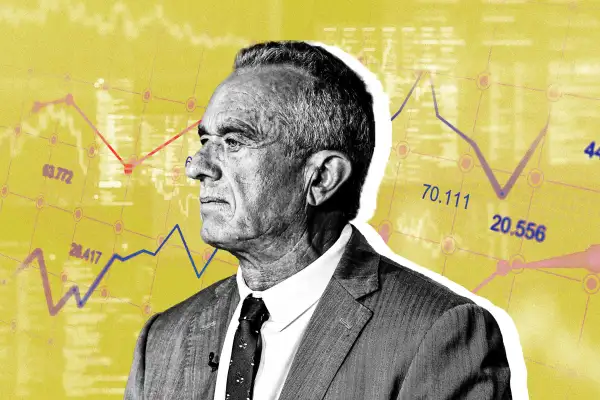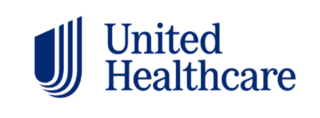Health Care Stocks Jittery After RFK Jr. Nomination News
Money is not a client of any investment adviser featured on this page. The information provided on this page is for educational purposes only and is not intended as investment advice. Money does not offer advisory services.

President-elect Donald Trump’s nomination of Robert F. Kennedy Jr. as secretary of the Department of Health and Human Services has the potential to upend investments in pharmaceutical and health care companies, particularly in the short term, according to analysts.
Investors are especially worried that Kennedy’s vocal hostility to vaccines could impact the bottom lines of the companies that make them. Immediately after the announcement of his nomination last week, the stocks of BioNTech, GSK, Moderna, Novo Nordisk and Pfizer dropped on Friday, according to the Wall Street Journal.
Sel Hardy, senior vice president of equity research at CFRA Research, says volatility in health sector stocks is to be expected in the near term as investors try to digest the implications of an unknown quantity like Kennedy — a nephew of former President John F. Kennedy — running a major government department.
“We’ve never seen RFK in a similar position before. We don't know at this point what he’ll fully prioritize,” she says. “My expectation maybe that he may focus initially on topics like food and supplements — topics where he might have broader support.”
Wall Street seems to be considering this possibility, too; stocks of major processed-food companies like PepsiCo and Coca-Cola fell following Trump’s announcement.
If confirmed, Kennedy’s appointment would put him at the helm of an enormous department that oversees a range of other agencies and divisions including the Centers for Disease Control and Prevention, the National Institutes of Health, and the Food and Drug Administration as well as the Centers for Medicare & Medicaid Services — spending for which is responsible for the bulk of the department's $1.7 trillion budget.
Ordinarily, with a Republican in the White House and the party controlling both chambers of Congress, investors’ expectation would be for a more business-friendly climate due to the party's traditional aversion to a robust regulatory regime. However, the populist streak running through Trump’s inner circle — Vice President-elect JD Vance has praised Biden-appointed Federal Trade Commission Chair Lina Khan for her aggressive regulation of Big Tech — as well as Trump’s unorthodox picks such as Kennedy make the tea leaves of this year’s election more challenging for Wall Street to read.
Unorthodox pick, unknown consequences
Specifically, Hardy says, big pharma and biotech companies weren’t expecting Kennedy. Although the former Democrat will have to be confirmed by the Senate before he can take the reins at HHS, political research firm Beacon Research suggests this outcome is likely. Beacon Research notes, though, that regardless of whether Kennedy winds up at the helm of the HHS, he is likely to have an impact.
“Even if he doesn’t get confirmed, he can still have a large role in the White House as a health czar,” they wrote. As an unofficial advisor, having the ear of the President could give him wide-ranging influence.
Jared Holz, health care equities strategist at Mizuho, put it more bluntly in a recent research note, writing, “The mere fact that [RFK] is in the conversation is a scary proposition for health care equities.”
The FDA has control over the advertisement and sale of medications and vaccines, and the CDC issues recommendations about vaccines for kids and adults. Kennedy has advanced debunked theories linking childhood vaccinations to rising rates of autism and related neurological disorders. Some on Wall Street note that just giving Kennedy such a prominent bully pulpit could impact the fortunes of vaccine makers, regardless of guidance or regulatory intervention.
Jefferies equities analyst Michael J. Yee told Genetic Engineering & Biotechnology News that a presence at the HHS could elevate Kennedy's anti-vax stance to a wider audience.
“In terms of childhood vaccines, RFK has been vocal on their safety and most importantly on the basis that they cause autism... All of this together could negatively impact vaccine perception in the US," the publication reported Yee said, adding that this could have broader public health consequences, as well, if vaccine skepticism is prevalent enough to prevent the herd immunity that suppresses outbreaks.
Another X-factor for drug companies is the extent to which the incoming Trump administration could alter the government's years-long initiative to negotiate lower prices for expensive Medicare drugs under the Inflation Reduction Act. While Trump has been vocally critical of other aspects of the IRA, particularly those related to green energy initiatives, analysts note that both candidates talked about high prescription drug costs while on the campaign trail.
“There was already bipartisan agreement on lowering drug costs,” Hardy says.
In particular, some have suggested that the popular class of GLP-1 weight-loss drugs, such as Ozempic, could be affected by a Kennedy-led HHS. Kennedy has criticized relying on these drugs as a method to lose weight (a stance that has itself been criticized for stigmatizing obesity).
Holz wrote, though, that both the prevalence of obesity and increasing adoption of GLP-1 drugs are likely to outweigh the impact of Kennedy’s criticism, even if he is in a major decision-making position.
“Demand is sky-high and will remain as such until behavioral patterns improve among other major changes,” he wrote. “Do not expect drug revenue growth to taper off at all.”
More from Money:
Donald Trump Is the President-Elect. Here's What It Means for Your Wallet
Medicare Drug Negotiations Expected to Save Enrollees $1.5 Billion a Year
White House Takes Aim at ‘Corporate Tricks’ That Waste People’s Time and Money





